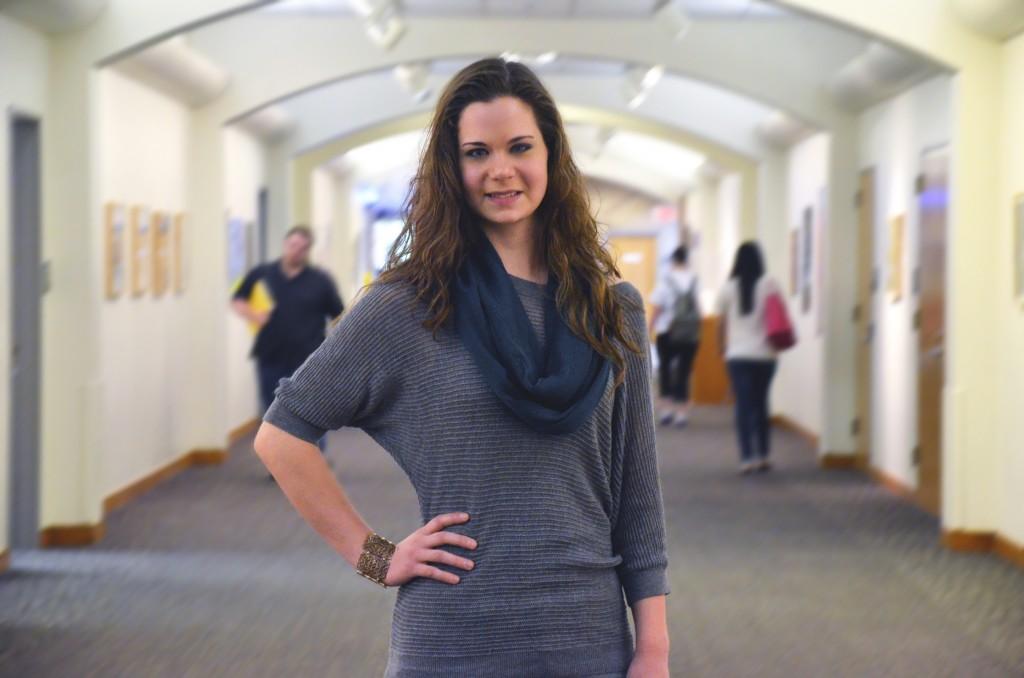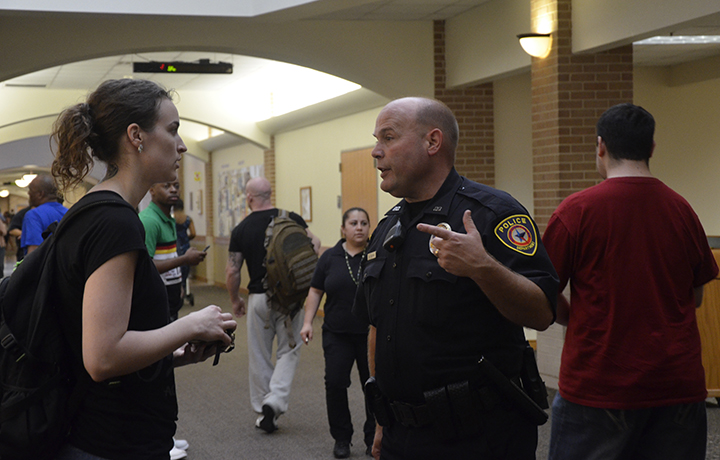By Kenney Kost/managing editor
State legislators are debating whether to allow concealed weapons on college campuses, and it’s making some TCC officials nervous.
The bill passed out of the House Homeland Security and Public Safety Committee and should move to the house floor soon, said Chancellor Erma Johnson Hadley. The Senate version has yet to have a hearing in its Committee on Criminal Justice. If the bill passes, any student, faculty or staff member with a concealed handgun license would be allowed to bring a firearm onto campus.
Hadley said TCC’s police department is trained extensively for these situations and believes untrained individuals being allowed to carry guns could be an issue.
“We think our professional, well-trained police department and other first responders are better equipped to handle emergencies and will continue to keep our campus environments as safe as possible,” she said. “Expanding this responsibility to others who are not trained for these situations could certainly pose a significant risk.”
NE Campus President Larry Darlage shares Hadley’s concern.
“They [concealed handgun carriers] aren’t going to be nearly as well trained,” he said. “Police officers have to go through continuous training, and even they make mistakes. We are not trained to kill people, and it happens so fast that any hesitation is enough to lose your life. I think it has the potential to do more harm than good.”
A provision that may or may not end up in the final bill gives public institutions the option to opt out, providing that administrators consult with students, faculty and staff first.
Hadley said the board of trustees prefers the “opt-in/opt-out” version and has stated such support through statewide advocacy organizations such as the Texas Association of Community Colleges and the Community College Association of Texas Trustees.
Darlage believes a decision such as this one should be left up to the individual institutions that are more in tune with their college’s safety standards.
“If it passes, I hope that option [opt-in/opt-out] is available so we can locally decide whether we want to allow guns on our campuses,” he said.
Being aware of potential issues, identifying the problem and working with potentially troublesome individuals before any problems arise is the key to a safe environment, Darlage said.
“Every campus has a CARE team, and we are working to standardize them across the district,” he said. “They can hopefully identify and work with individuals who have mental issues or things of that nature before anything happens in an attempt to avert bad situations. Identifying and working through the problem is the best way to go instead of just reacting by giving everyone guns.”
Both Hadley and Darlage believe the requirements for obtaining a license should be carefully reviewed and as strict as possible if the bill passes.
South Campus student Shannon Herring said she believes that adding more firepower to a situation is not a solution at all and has the potential to create even more tragic scenarios.
“I just see the potential for complete overreaction to situations and people pulling out guns at anything that even resembles possible danger,” she said. “I think a lot of people will feel they need to be a hero when they don’t at all. I just see it creating more tragedy.”
Many students feel the same way, including NE Campus English major Lauren Miller, who hopes for the opt-in/opt-out measure to be in the final bill.
“I really don’t think it’s a good idea,” Miller said. “Concealed handgun is not enough for these types of situations. I would definitely attend a meeting and voice my opinion against it if the measure ends up in the final bill.”
Safety is the top priority for TCC, Hadley said. The police department and the safety and emergency management department have coordinated to ensure that emergency drills such as fire, evacuation and active shooter are consistent and performed on all campuses regularly.
“We have invested heavily in notification systems as well as surveillance systems, alarm systems and blue phones across our campuses,” Hadley said. “We also have very well-trained personnel.”
The safety and emergency management department plans several programs throughout the course of the year to educate students, faculty and staff on what to do in case of an emergency.
Information is crucial in an emergency situation, Hadley said, and TCC has put several communication tools in place to provide timely and accurate information.
“These tools include desktop alerts, clocks with visual and audible alert messages, myTCC alerts, text and email messages and the TCC website,” she said.
“We emphasize the need for all members of the TCC community to update their alerts profile to ensure that they get the most up-to-date information where and when they need it.”


























